 This story by Fredric Brown explores the use of black magic to solve a marriage problem. Mr and Mrs Decker have decided on a divorce. Love has turned to hate, and the break-up is not friendly. The biggest issue they need to agree on is the financial settlement. Mrs Decker wants half of everything; Mr Decker thinks this is too much. She knows voodoo, and tells him she could use it to kill and him and get everything if he didn’t agree. This leads to an all-or-nothing bet. Themes include hatred, divorce, greed, the supernatural. More…
This story by Fredric Brown explores the use of black magic to solve a marriage problem. Mr and Mrs Decker have decided on a divorce. Love has turned to hate, and the break-up is not friendly. The biggest issue they need to agree on is the financial settlement. Mrs Decker wants half of everything; Mr Decker thinks this is too much. She knows voodoo, and tells him she could use it to kill and him and get everything if he didn’t agree. This leads to an all-or-nothing bet. Themes include hatred, divorce, greed, the supernatural. More…
Archives
The Imp of the Perverse
 Like two of our earlier Edgar Allan Poe tales (The Back Cat and The Tell-Tale Heart), this story involves an unreliable, unhinged narrator facing execution for murder trying to account for his crime. He blames his actions on an agent he claims to be in all of us called the “Imp of the Perverse”. The Imp, he argues, is an urge that drives people to do things they shouldn’t for the simple reason that they know it to be wrong. Ironically, the Imp that drove him to murder also drove him to confess. Themes include perverseness, obsession, madness, self-destruction. More…
Like two of our earlier Edgar Allan Poe tales (The Back Cat and The Tell-Tale Heart), this story involves an unreliable, unhinged narrator facing execution for murder trying to account for his crime. He blames his actions on an agent he claims to be in all of us called the “Imp of the Perverse”. The Imp, he argues, is an urge that drives people to do things they shouldn’t for the simple reason that they know it to be wrong. Ironically, the Imp that drove him to murder also drove him to confess. Themes include perverseness, obsession, madness, self-destruction. More…
The Right Kind of House
 In this story by Henry Slesar, a stranger in an expensive car visits a small-town real-estate agent to enquire about a dilapidated house that has a ‘For Sale’ sign out front. The agent advises that the owner (an elderly woman with an apparent sentimental attachment to the house) is insisting on over seven times a fair asking price. The man visits the woman to try to negotiate and is left with a bitter taste in his mouth when, after she proves inflexible, he is forced to agree to her price. Themes include crime, patience, appearances vs. reality, vengeance, justice. More…
In this story by Henry Slesar, a stranger in an expensive car visits a small-town real-estate agent to enquire about a dilapidated house that has a ‘For Sale’ sign out front. The agent advises that the owner (an elderly woman with an apparent sentimental attachment to the house) is insisting on over seven times a fair asking price. The man visits the woman to try to negotiate and is left with a bitter taste in his mouth when, after she proves inflexible, he is forced to agree to her price. Themes include crime, patience, appearances vs. reality, vengeance, justice. More…
A Good Man is Hard to Find
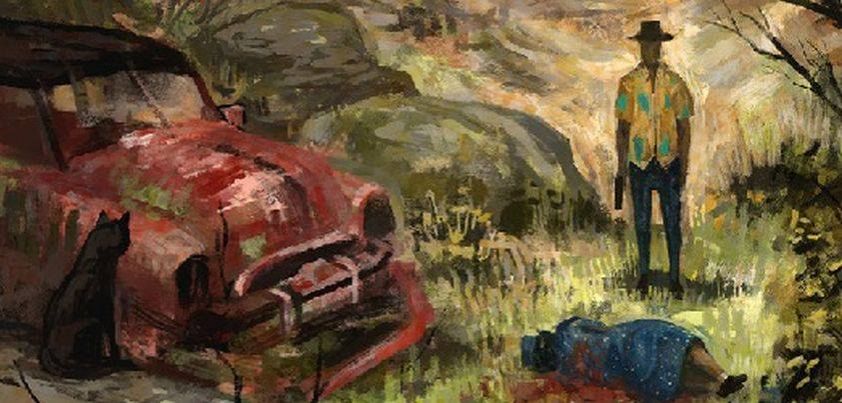 Flannery O’Connor is a master at coming up with stories in which almost every main character has some kind of flaw. It is hard to like any of this dysfunctional family of six (except maybe the baby) as they cruise down Highway 441. When their car overturns beside a deserted road, they attract the attention of a crazed killer who calls himself “The Misfit”. As the rest of the family are murdered around her, the grandmother tries to convince the Misfit that deep inside he is one of those hard to find men. Themes: prejudice, deception, violence, religion, “goodness”, redemption More…
Flannery O’Connor is a master at coming up with stories in which almost every main character has some kind of flaw. It is hard to like any of this dysfunctional family of six (except maybe the baby) as they cruise down Highway 441. When their car overturns beside a deserted road, they attract the attention of a crazed killer who calls himself “The Misfit”. As the rest of the family are murdered around her, the grandmother tries to convince the Misfit that deep inside he is one of those hard to find men. Themes: prejudice, deception, violence, religion, “goodness”, redemption More…
Lamb to the Slaughter
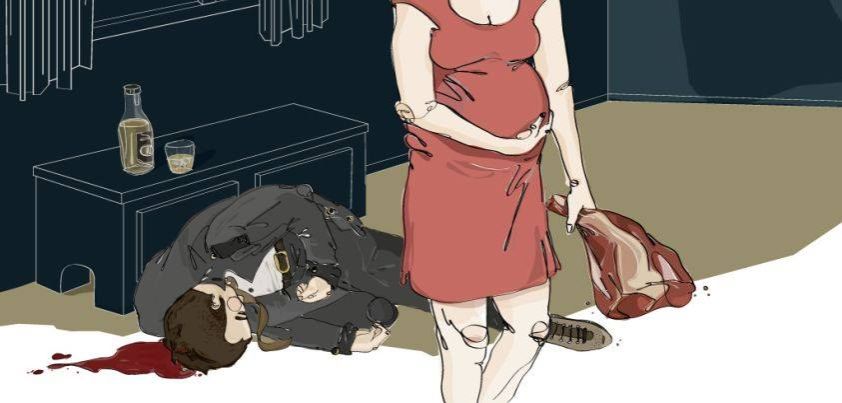 The title of this story by Roald Dahl may have a clever double meaning. On the one hand, we have a woman who uses a lamb, or rather a frozen leg of lamb, to kill her husband. On the other, it may relate to the English idiom “Like a lamb to the Slaughter”. This would lead to the question: Which of the characters (the husband, the wife or both) could be described as someone going calmly about their business, not knowing that something very unpleasant is about to happen to them? Themes include betrayal, identity/gender stereotyping, injustice and revenge. More…
The title of this story by Roald Dahl may have a clever double meaning. On the one hand, we have a woman who uses a lamb, or rather a frozen leg of lamb, to kill her husband. On the other, it may relate to the English idiom “Like a lamb to the Slaughter”. This would lead to the question: Which of the characters (the husband, the wife or both) could be described as someone going calmly about their business, not knowing that something very unpleasant is about to happen to them? Themes include betrayal, identity/gender stereotyping, injustice and revenge. More…
Suspicion
 Although Dorothy Sayers is best known for her mystery stories featuring amateur sleuths Lord Peter Wimsey and Montague Egg, this story features neither. Real estate agent Harold Mummery fears for his ailing wife. Police are hunting for a cook suspected to have poisoned several of her employers. His wife has recently hired a new cook, someone has been tampering with the arsenic-based weed killer in his garden shed, and he is beginning to feel ill. When a chemist identifies arsenic in some hot chocolate the new cook prepared, he rushes home. Themes: fear, suspicion, deception and betrayal, appearance vs. reality. More…
Although Dorothy Sayers is best known for her mystery stories featuring amateur sleuths Lord Peter Wimsey and Montague Egg, this story features neither. Real estate agent Harold Mummery fears for his ailing wife. Police are hunting for a cook suspected to have poisoned several of her employers. His wife has recently hired a new cook, someone has been tampering with the arsenic-based weed killer in his garden shed, and he is beginning to feel ill. When a chemist identifies arsenic in some hot chocolate the new cook prepared, he rushes home. Themes: fear, suspicion, deception and betrayal, appearance vs. reality. More…
The Tell-Tale Heart
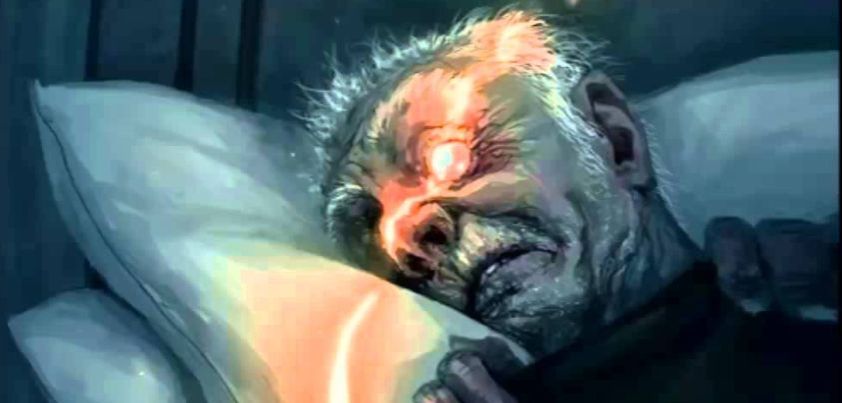 In this Gothic horror story by Edgar Allan Poe, the narrator describes how cleverly he or she has planned and carried out the murder of an old man. The only reason given is fear of what is described as the old man’s ‘vulture eye’. The narrator’s purpose in telling the story is to convince the audience that he or she is not mad. There are a number of ironic aspects to the story, perhaps the greatest being that in trying to prove his or her sanity, the narrator clearly demonstrates the opposite. Themes: mental illness, fear, time, guilt vs. innocence. More…
In this Gothic horror story by Edgar Allan Poe, the narrator describes how cleverly he or she has planned and carried out the murder of an old man. The only reason given is fear of what is described as the old man’s ‘vulture eye’. The narrator’s purpose in telling the story is to convince the audience that he or she is not mad. There are a number of ironic aspects to the story, perhaps the greatest being that in trying to prove his or her sanity, the narrator clearly demonstrates the opposite. Themes: mental illness, fear, time, guilt vs. innocence. More…
Minutes of Glory
 This Ngugi Wa Thiong’o story highlights the human cost of progress in developing countries such as post-independence Kenya. Its main themes are exploitation, class differences, identity, loneliness and appearances. A young woman leaves her village in search of a better life in the city. She is poorly educated, and ends up working as a hostess in beer bars. Unhappy with the life, the money she makes and her appearance, she dreams of something better. Cut off from her family and alone in the world, she steals money from a customer and uses it to experience a few minutes of glory. More…
This Ngugi Wa Thiong’o story highlights the human cost of progress in developing countries such as post-independence Kenya. Its main themes are exploitation, class differences, identity, loneliness and appearances. A young woman leaves her village in search of a better life in the city. She is poorly educated, and ends up working as a hostess in beer bars. Unhappy with the life, the money she makes and her appearance, she dreams of something better. Cut off from her family and alone in the world, she steals money from a customer and uses it to experience a few minutes of glory. More…
Heat
 In this confronting story by Joyce Carol Oates, mischievous eleven-year-old twin girls are brutally murdered by Roger Whipple, a supposedly harmless, mentally challenged man. Major themes are power, cruelty and violent revenge. The twins exercise persuasive power by demanding compliance with their wishes from school friends and cruelly harassing and making fun of Roger. The power theme is emphasized through anecdotes about the girls’ antics and dark humor: We liked it that Rhea and Rhoda had been killed … but we didn’t like it that they were dead; we missed them. In the end revenge, and Roger’s physical power, prevail. More…
In this confronting story by Joyce Carol Oates, mischievous eleven-year-old twin girls are brutally murdered by Roger Whipple, a supposedly harmless, mentally challenged man. Major themes are power, cruelty and violent revenge. The twins exercise persuasive power by demanding compliance with their wishes from school friends and cruelly harassing and making fun of Roger. The power theme is emphasized through anecdotes about the girls’ antics and dark humor: We liked it that Rhea and Rhoda had been killed … but we didn’t like it that they were dead; we missed them. In the end revenge, and Roger’s physical power, prevail. More…
The Most Dangerous Game
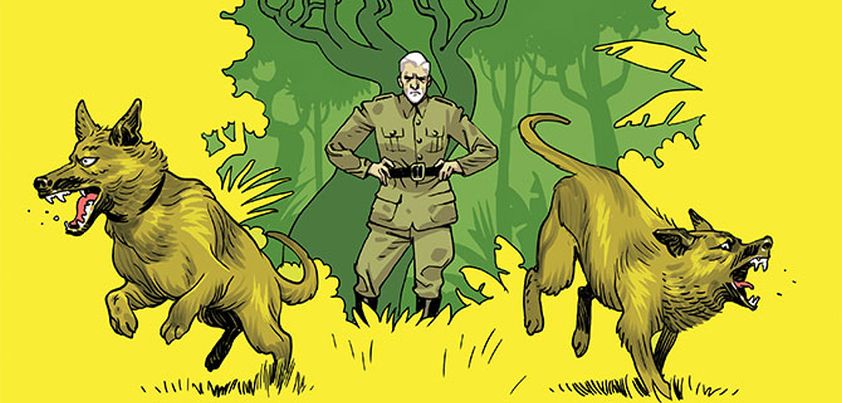 Although written almost a hundred years ago, this seemingly timeless adventure story from Richard Connell is still widely taught in schools. In addition to being an exciting, suspenseful read, one of the reasons for this is the continuing passionate debate about the ethics of hunting for sport. Rainsford the hunter has no regard for the rights or feelings of the animals he kills; Rainsford the hunted clearly thinks otherwise. Note the play on words in the title. Both the ‘game’ Zoroff plays and the ‘game’ he hunts are dangerous. Themes: trophy-hunting, man’s inhumanity to man, violence and cruelty, survival, revenge. More…
Although written almost a hundred years ago, this seemingly timeless adventure story from Richard Connell is still widely taught in schools. In addition to being an exciting, suspenseful read, one of the reasons for this is the continuing passionate debate about the ethics of hunting for sport. Rainsford the hunter has no regard for the rights or feelings of the animals he kills; Rainsford the hunted clearly thinks otherwise. Note the play on words in the title. Both the ‘game’ Zoroff plays and the ‘game’ he hunts are dangerous. Themes: trophy-hunting, man’s inhumanity to man, violence and cruelty, survival, revenge. More…
The Adventure of the Dancing Men
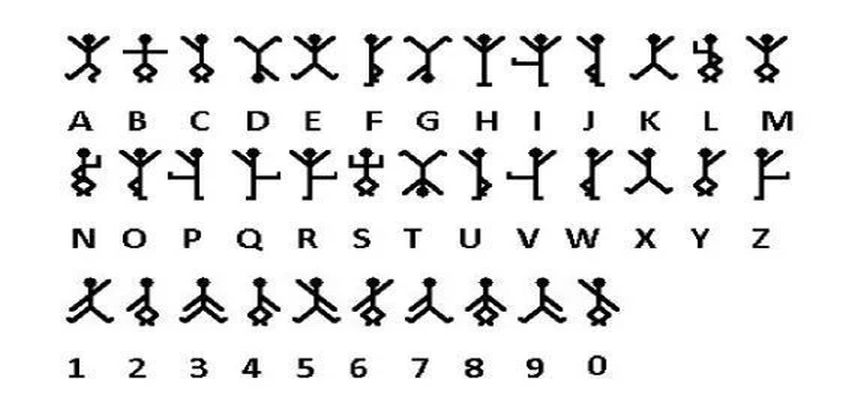 In this mystery by Arthur Conan Doyle, an English squire from a highly respected family asks Sherlock Holmes for help. His new bride has been receiving messages written in a strange code that appear to terrify her. The woman, an American, refuses to discuss her past, and a condition of her marrying him was that he must promise never to ask about it. Holmes takes on the case and easily cracks the code, but doesn’t move quickly enough to prevent a murder. Themes include honor, shame, secretiveness, fear, unrequited love, obsession, crime and justice. More…
In this mystery by Arthur Conan Doyle, an English squire from a highly respected family asks Sherlock Holmes for help. His new bride has been receiving messages written in a strange code that appear to terrify her. The woman, an American, refuses to discuss her past, and a condition of her marrying him was that he must promise never to ask about it. Holmes takes on the case and easily cracks the code, but doesn’t move quickly enough to prevent a murder. Themes include honor, shame, secretiveness, fear, unrequited love, obsession, crime and justice. More…
Sweat
 At its simplest, this story by Zora Neale Hurston is about a cheating, abusive husband who got what was coming to him. Everyone in Delia’s poor black community seems to know about her brutal mistreatment at the hands of husband Sykes. However, nobody offers to help. She finally reaches breaking point, and threatens to go to the “white folks” if he touches her again. Sykes wants Delia’s house and devises a plan to kill her but, in an ironic twist, she manages to turn the tables. Themes: oppression, good vs. evil, hard work vs. laziness, domestic abuse, adultery, courage, greed. More…
At its simplest, this story by Zora Neale Hurston is about a cheating, abusive husband who got what was coming to him. Everyone in Delia’s poor black community seems to know about her brutal mistreatment at the hands of husband Sykes. However, nobody offers to help. She finally reaches breaking point, and threatens to go to the “white folks” if he touches her again. Sykes wants Delia’s house and devises a plan to kill her but, in an ironic twist, she manages to turn the tables. Themes: oppression, good vs. evil, hard work vs. laziness, domestic abuse, adultery, courage, greed. More…
Bullet in the Brain
 This Tobias Wolff story features a protagonist who is so unlikable that it seems a relief when a bank robber silences him. Sarcastic to the point of being obnoxious, Anders provides some humorous moments (Love the comment about The Killers!) before getting the richly deserved Bullet in the Brain. Unlike Bierce’s Occurrence at Owl Creek Bridge, where the protagonist enjoys an uplifting moment-of-death experience, Anders re-lives a childhood baseball game. The highlights of his life were the simple pleasures of youth (such as enjoying the musical quality of a strange accent), before losing his innocence to conceit, disillusionment and cynicism. More…
This Tobias Wolff story features a protagonist who is so unlikable that it seems a relief when a bank robber silences him. Sarcastic to the point of being obnoxious, Anders provides some humorous moments (Love the comment about The Killers!) before getting the richly deserved Bullet in the Brain. Unlike Bierce’s Occurrence at Owl Creek Bridge, where the protagonist enjoys an uplifting moment-of-death experience, Anders re-lives a childhood baseball game. The highlights of his life were the simple pleasures of youth (such as enjoying the musical quality of a strange accent), before losing his innocence to conceit, disillusionment and cynicism. More…
The Man Who Loved Flowers
 In this story from Stephen King, people are cheered by the sight of a well-dressed young man walking down a New York City street one spring evening. He has the appearance of a man in love, which is confirmed when he buys a bouquet of flowers for his girlfriend Norma. The twist comes when he hands the flowers to a young woman and savagely beats her to death when she says her name is not Norma. Norma is long dead, but the obsessed former admirer is still looking for her. Themes include appearance vs. reality, love, obsession, denial, madness, murder. More…
In this story from Stephen King, people are cheered by the sight of a well-dressed young man walking down a New York City street one spring evening. He has the appearance of a man in love, which is confirmed when he buys a bouquet of flowers for his girlfriend Norma. The twist comes when he hands the flowers to a young woman and savagely beats her to death when she says her name is not Norma. Norma is long dead, but the obsessed former admirer is still looking for her. Themes include appearance vs. reality, love, obsession, denial, madness, murder. More…
A Vendetta
 This story by Guy de Maupassant features an old widow who lives in a small village in Southern Italy with her only son and his dog. One evening, the son is murdered. The mother is so saddened by this that she swears a vendetta against the killer. Every day, she sits by the window wondering how she, a weak old woman with no one to help her, can carry out her promise. Finally, she comes up with an idea and has her revenge. Themes include grief, vengeance, cruelty, the brutality and potential for injustice of the code of vendetta. More…
This story by Guy de Maupassant features an old widow who lives in a small village in Southern Italy with her only son and his dog. One evening, the son is murdered. The mother is so saddened by this that she swears a vendetta against the killer. Every day, she sits by the window wondering how she, a weak old woman with no one to help her, can carry out her promise. Finally, she comes up with an idea and has her revenge. Themes include grief, vengeance, cruelty, the brutality and potential for injustice of the code of vendetta. More…
Killings
 At a simplistic level this provocative story by Andre Dubus suggests that, given the right circumstances, almost anyone could become a cold-blooded killer. On one hand we have Strout (aggressive, violent and possibly psychologically disturbed); on the other, Matt (a peaceful, model citizen). Matt’s wife suffers untold emotional pain as she regularly encounters Strout (their son’s murderer) while he walks around town on bail. Rather than wait for the trial, Matt and his redneck friend Willis make elaborate plans for a killing of their own. Themes: love/marriage, murder, grief, justice, revenge, morality. More…
At a simplistic level this provocative story by Andre Dubus suggests that, given the right circumstances, almost anyone could become a cold-blooded killer. On one hand we have Strout (aggressive, violent and possibly psychologically disturbed); on the other, Matt (a peaceful, model citizen). Matt’s wife suffers untold emotional pain as she regularly encounters Strout (their son’s murderer) while he walks around town on bail. Rather than wait for the trial, Matt and his redneck friend Willis make elaborate plans for a killing of their own. Themes: love/marriage, murder, grief, justice, revenge, morality. More…
The Landlady
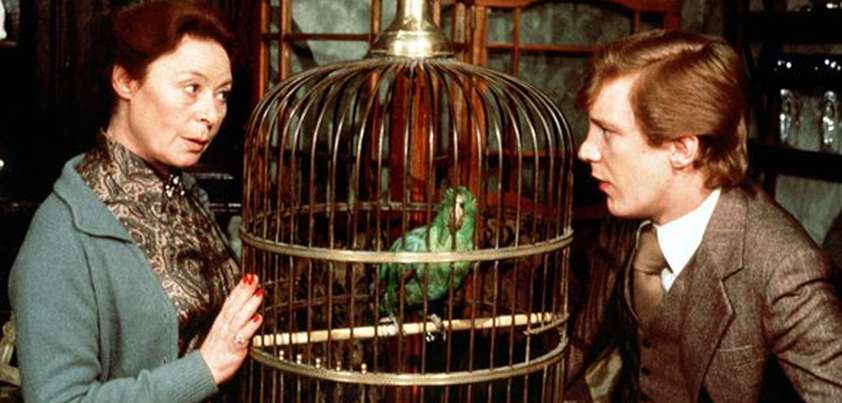 The theme of this Roald Dahl story is the commonly adopted things aren’t always as they seem. What sets it apart is the way Dahl gradually builds tension, starting with his descriptions of the weather and outdoor setting, then moving on to the supernatural before young Billy even meets the “motherly” landlady. (Each word was like a large black eye staring at him through the glass, holding him …) From then on, almost every step involves dramatic irony. The reader can see that something is wrong, which softens the impact of the horror ending, but naïve Billy remains frustratingly oblivious. More…
The theme of this Roald Dahl story is the commonly adopted things aren’t always as they seem. What sets it apart is the way Dahl gradually builds tension, starting with his descriptions of the weather and outdoor setting, then moving on to the supernatural before young Billy even meets the “motherly” landlady. (Each word was like a large black eye staring at him through the glass, holding him …) From then on, almost every step involves dramatic irony. The reader can see that something is wrong, which softens the impact of the horror ending, but naïve Billy remains frustratingly oblivious. More…
The Perfect Murder
 In this story with an unlikely twist by Jeffrey Archer, a married man strikes his mistress and storms out of her house after catching her with another man. The next day, he learns she died during the night. He has three options: 1) to do nothing and live in fear that the police investigation will connect him to her; 2) to contact the police and claim that her death was an accident; and 3) to frame the other lover for her murder. He chooses the latter, and closely follows the innocent man’s trial. Themes include infidelity, violence, guilt, fear, injustice. More…
In this story with an unlikely twist by Jeffrey Archer, a married man strikes his mistress and storms out of her house after catching her with another man. The next day, he learns she died during the night. He has three options: 1) to do nothing and live in fear that the police investigation will connect him to her; 2) to contact the police and claim that her death was an accident; and 3) to frame the other lover for her murder. He chooses the latter, and closely follows the innocent man’s trial. Themes include infidelity, violence, guilt, fear, injustice. More…
A Woman’s Help
 In this story by Henry Slesar, a sensitive, handsome man has spent his life having his every need catered for by the women in his life. Unfortunately, he now finds himself trapped in a loveless marriage to a rich, bed-ridden woman who takes pleasure in having him at her back and call. Things take a positive turn when she hires an attractive nurse/companion. Romance blossoms and the two come up with a plot to do away with the wife. Things don’t go as expected, but the desperate husband has a backup plan. Themes include control, despair, manipulation, deception, jealousy, crime. More…
In this story by Henry Slesar, a sensitive, handsome man has spent his life having his every need catered for by the women in his life. Unfortunately, he now finds himself trapped in a loveless marriage to a rich, bed-ridden woman who takes pleasure in having him at her back and call. Things take a positive turn when she hires an attractive nurse/companion. Romance blossoms and the two come up with a plot to do away with the wife. Things don’t go as expected, but the desperate husband has a backup plan. Themes include control, despair, manipulation, deception, jealousy, crime. More…
The Return
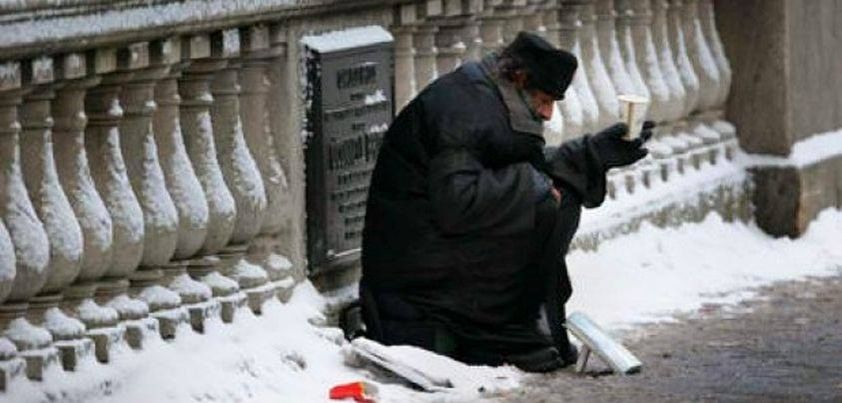 In this story by Fernando Sorrentino a man looking out his window witnesses a neighbour accidentally cause the death of a persistent beggar trying to open his gate. Later, he sees the dead beggar “return” and take the form of a newborn baby boy. When the boy is older, he accidentally causes the death of the man who killed the beggar and suddenly disappears. The author has cleverly created the narrator’s character so that, if readers look a little harder, they might question if this is what really happened. Themes include guilt, revenge, justice/karma, unrequited love, the supernatural. More…
In this story by Fernando Sorrentino a man looking out his window witnesses a neighbour accidentally cause the death of a persistent beggar trying to open his gate. Later, he sees the dead beggar “return” and take the form of a newborn baby boy. When the boy is older, he accidentally causes the death of the man who killed the beggar and suddenly disappears. The author has cleverly created the narrator’s character so that, if readers look a little harder, they might question if this is what really happened. Themes include guilt, revenge, justice/karma, unrequited love, the supernatural. More…